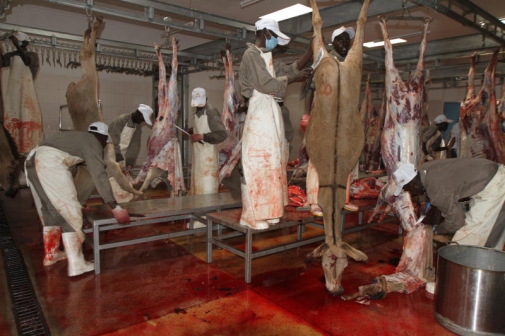×
The Standard e-Paper
Join Thousands Daily

Work going on in the slaughterhouse. [Joseph Kipsang]
A 50-kilometre drive from Nakuru towards Mogotio in Baringo leads to the sleepy Chemogoch village, the home of Kenya's first operational donkey slaughterhouse.